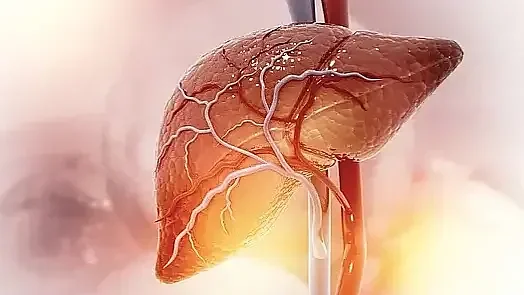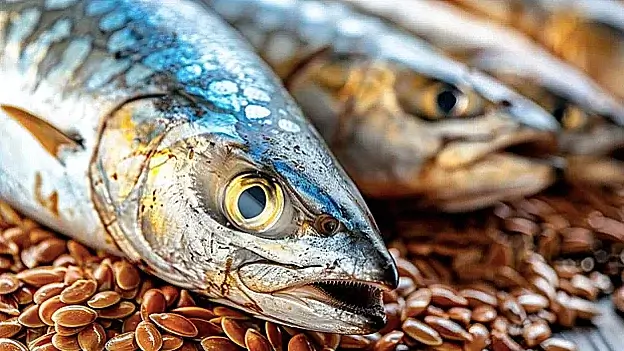Benefits of Acupuncture for Fatty Liver Health

Benefits, Research & Treatment Guide
Sitting in my clinic, I once had a patient named John, who walked in looking more like a deflated balloon than a man in his forties. He was tired, frustrated, and overwhelmed by the diagnosis of non-alcoholic fatty liver disease (NAFLD). As we discussed his lifestyle, he mentioned how he had tried everything from restrictive diets to intense exercise regimens, but nothing seemed to work. It was during our conversation that I suggested incorporating acupuncture into his treatment plan. Little did he know, this ancient practice would not only help with his liver health but also become a source of humor as he learned to embrace the needles like a porcupine at a petting zoo. Acupuncture for fatty liver is gaining recognition as a complementary therapy that can offer various benefits. This article explores how acupuncture can support liver health and improve the overall well-being of individuals dealing with fatty liver disease.
Understanding Fatty Liver Disease
Fatty liver disease occurs when excess fat builds up in liver cells. This condition can lead to inflammation and damage if left untreated. The causes of fatty liver are varied, including obesity, insulin resistance, high cholesterol, and poor dietary choices. While lifestyle changes such as diet and exercise are crucial for managing this condition, acupuncture for fatty liver presents an alternative approach that can enhance recovery.
How Acupuncture Works
Acupuncture involves inserting thin needles into specific points on the body to stimulate energy flow and promote healing. In Traditional Chinese Medicine (TCM), the liver is associated with the smooth flow of Qi (energy) and blood. When this flow is disrupted, it can lead to various health issues, including fatty liver disease. By restoring balance and promoting circulation through acupuncture, patients may experience improved liver function.
Benefits of Acupuncture for Fatty Liver
- Reduction of Inflammation: Acupuncture has been shown to reduce inflammation in the body. For patients with fatty liver disease, this is particularly important as inflammation can exacerbate liver damage. Studies indicate that acupuncture can lower levels of pro-inflammatory cytokines, helping to protect the liver from further harm.
- Improved Metabolism: One of the key factors in managing fatty liver is improving metabolism. Acupuncture for fatty liver can enhance metabolic processes by promoting better digestion and nutrient absorption. This can lead to weight loss and reduced fat accumulation in the liver.
- Stress Reduction: Stress has a significant impact on liver health. High stress levels can lead to unhealthy eating habits and lifestyle choices that contribute to fatty liver disease. Acupuncture promotes relaxation and reduces stress hormones like cortisol, which can help patients make better choices regarding their diet and lifestyle.
- Enhanced Blood Circulation: Improved blood flow is essential for delivering nutrients to the liver and removing toxins from the body. Acupuncture stimulates circulation, ensuring that the liver receives the support it needs to function optimally.
- Hormonal Balance: Hormonal imbalances can contribute to fatty liver disease. Acupuncture has been shown to regulate hormones related to metabolism and stress response, aiding in overall hormonal balance.
- Support for Detoxification: The liver plays a crucial role in detoxifying harmful substances from the body. Acupuncture can enhance the liver's detoxification processes by promoting bile production and improving overall liver function.
- Complementary Treatment: Acupuncture can be used alongside conventional treatments for fatty liver disease, such as dietary changes and medication. This integrative approach allows patients to benefit from multiple therapies working together for better outcomes.
Incorporating Acupuncture into Your Treatment Plan
If you are considering acupuncture for fatty liver, it’s essential to work with a qualified practitioner experienced in treating this condition. During your initial consultation, the practitioner will assess your overall health and develop a personalized treatment plan tailored to your specific needs.
What to Expect During Treatment
During an acupuncture session, you may feel slight discomfort as the needles are inserted but should not experience pain. Many patients report feeling relaxed during treatment, often falling asleep on the table—a testament to its calming effects. Sessions typically last between 30 minutes to an hour, depending on individual needs and treatment goals. Depending on your condition's severity, you may require weekly sessions initially, gradually reducing frequency as you progress.
Lifestyle Considerations
While acupuncture can significantly benefit those with fatty liver disease, it should not replace healthy lifestyle choices. A balanced diet rich in whole foods—fruits, vegetables, lean proteins—and regular physical activity remain critical components of managing this condition effectively. Additionally, staying hydrated and avoiding excessive alcohol consumption will further support your liver health.
Conclusion
Acupuncture for fatty liver offers a holistic approach to managing this increasingly common condition. By addressing inflammation, improving metabolism, reducing stress, enhancing circulation, balancing hormones, and supporting detoxification processes, acupuncture serves as a valuable tool in promoting overall liver health. As John discovered through his journey with acupuncture, embracing new treatments can lead not only to physical improvements but also moments of levity amidst serious health challenges. If you're navigating the complexities of fatty liver disease or seeking complementary therapies for better health outcomes, consider incorporating acupuncture into your treatment plan.
Share this article

Dr. Nico Fabian, MD
I'm a physician and board-certified internist who completed my Internal Medicine training at St. Luke’s Medical Center in Quezon City. See Full Bio.
-
1. Chen, P., Zhong, X., Dai, Y., Tan, M., Zhang, G., Ke, X., et al. (2021). The efficacy and safety of acupuncture in non-alcoholic fatty liver disease: a systematic review and meta-analysis of randomized controlled trials. Medicine (Baltimore) 100:e27050. doi: 10.1097/md.0000000000027050
-
2. Lee, S. S., and Park, S. H. (2014). Radiologic evaluation of nonalcoholic fatty liver disease. World J. Gastroenterol. 20, 7392–7402. doi: 10.3748/wjg.v20.i23.7392
-
3. Li, M., Yao, L., Huang, H., Wang, G., Yu, B., Zheng, H., et al. (2021a). Acupuncture for type 2 diabetes mellitus with nonalcoholic fatty liver disease: a protocol for systematic review and meta-analysis. Medicine (Baltimore) 100:e26043. doi: 10.1097/md.0000000000026043
-
4. Ma, B., Li, P., An, H., and Song, Z. (2020). Electroacupuncture attenuates liver inflammation in nonalcoholic fatty liver disease rats. Inflammation 43, 2372–2378. doi: 10.1007/s10753-020-01306-w
-
5. Zeng, Z. H., Zeng, M. H., Huang, X. K., Chen, R., and Yu, H. (2014). Effect of electroacupuncture stimulation of back-shu points on expression of TNF-alpha and lipid peroxidation reaction in the liver tissue in non-alcoholic fatty liver disease rats. Zhen Ci Yan Jiu 39, 288–292.
-
6. Zhu L-L, Wei W-M, Zeng Z-H, et al. Impact of electro-acupuncture on lipid metabolism in rats with non-alcoholic fatty liver disease. Sichuan Da Xue Xue Bao Yi Xue Ban 2012;43:847–50.
Fatty Liver Symptoms in Females Fatty liver disease, a condition that occurs when fat builds up in the liver, manifests in both males and females.
How Common is Fatty Liver? In the maze of modern health issues, fatty liver disease has quietly emerged as a widespread concern, impacting millions...
Does Fatty Liver Go Away? Fatty liver disease is like an unwelcome guest that sneaks into your body quietly, often without any symptoms, until it...

You might enjoy more articles by
Dr. Nico Fabian, MD
 Disease
Disease Diets
Diets Recipes
Recipes Supplements
Supplements Management
Management Calculators
Calculators Quizzes
Quizzes Glossary
Glossary




















